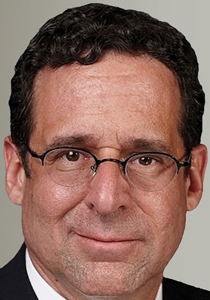Sunday, Sept. 6, 2015 | 2 a.m.
View more of the Sun's opinion section
Brian Greenspun is taking some time off and is turning over his Where I Stand column to others. Today’s guest columnist is Robert Lang, director of the think tank Brookings Mountain West at UNLV, an outreach of the Brookings Institution.
The 2015 Legislature again revised the state’s Live Entertainment Tax. Recent debates centered on the definition of “live entertainment,” how to collect the tax and exemptions to the tax. But once again Nevada failed to address the most critical issue surrounding this tax.
Unlike other major entertainment destinations, such as our prime competitor, Orlando, Fla., Southern Nevada does not retain a “carve-out” — a portion of the revenues generated by these location-specific events — to reinvest in tourist infrastructure so we can continue to build on Southern Nevada’s No. 1 industry.
Orlando economic development staffers contacted Brookings Mountain West following the close of the 2015 Nevada Legislature to confirm that the state increased and broadened its live entertainment tax yet failed to secure a single new penny for investment in tourism assets. In addition, two-thirds of our current bed taxes flow to uses other than building and promoting our tourist economy. By contrast, Orlando maintains by law a 100 percent capture of its bed tax for tourism.
Our conversation with officials in Orlando concluded with one basic request from them: Please tell us the same legislators who failed to secure new funding streams for Las Vegas tourist investments will be in office next session.
Not to be polite, Orlando sees us as sitting ducks.
Consider that Orlando’s locally generated entertainment funds (or the “tourist development tax”) pay for improvements in major venues that strengthen and expand the region’s booming tourist economy. For instance, over the past two years, Orlando plowed tourist-generated taxes into more than $200 million in upgrades at the 60,000-plus-seat Citrus Bowl and constructing Orlando City Stadium for more than $150 million.
Orlando City Stadium is an especially key contrast with Las Vegas. The venue soon will house a Major League Soccer expansion franchise and will play host to the 2016 and 2017 NCAA Women’s College Cup championship. City Stadium sits smack downtown and is part of a broader urban-redevelopment effort. Yes, Orlando did exactly what Las Vegas failed to do: build a soccer stadium downtown. One key reason for success: locally generated tourist taxes help build entertainment infrastructure. Orlando has this tax stream; Las Vegas does not.
Why a soccer stadium? Orlando is targeting tourists from Latin America and sees soccer as a major draw. Note that Las Vegas also is booming with visitors from Latin America, especially Brazil. A downtown Las Vegas soccer-led stadium would appeal to many foreign tourists and provide a much-needed venue for multi-use live entertainment.
You also may recall Orlando’s recent efforts to secure the National Finals Rodeo (NFR) from Las Vegas. While the effort was unsuccessful, it was not due to a lack of local resources or facilities. Orlando planned to pay for a new NFR arena in part by taxing tickets to that very event.
And Orlando is not alone in securing stadium resources from public sources while Las Vegas fails. Consider that Arlington, Texas, a city of nearly 400,000 residents, has attached a portion of locally generated retail sales taxes to build a massive live-entertainment complex that includes baseball and football stadiums. In fact, the 85,000-seat AT&T Stadium (home to the Dallas Cowboys) — one of the largest and most sophisticated entertainment venues in the world — is owned by Arlington. To think, Arlington does all this on a small portion of retail sales that are dwarfed by those in Southern Nevada.
Given local taxes generated in the retail and entertainment sector from tourist dollars alone, Las Vegas could have the most spectacular stadium in the U.S. If Southern Nevada had the same revenue streams available to Orlando or Arlington but enhanced by the region’s hyper rate of tourist consumption and taxation, Las Vegas could build a must-see, envied-worldwide mega-entertainment complex, no problem.
Finally, Las Vegas has one quality that Dallas and all other major tourist markets (except Orlando) lack: Most seats in Las Vegas venues are filled by out-of-towners. When Glendale, Ariz., stole the Arizona Cardinals from Tempe, it did little to alter the fact that metro Phoenix residents fill seats in either site. Yet any new stadium in Las Vegas will grow our entertainment tourist infrastructure and add to regional export wealth in a way Phoenix and Dallas cannot match.
Southern Nevada’s leading competitive economic advantage is tourism, and it will remain that way even if we succeed in much-needed industry diversification efforts. Expanding the core economy with new entertainment capacity is a certain winner. Orlando — to use Vegas parlance — is doubling down on its tourist expansion bet via multiple tax streams generated by lodging, entertainment and retail sales.
For now, Las Vegas is floundering on the sideline, but it is not too late to get in the game. Las Vegas has a potent tourist sector. If even a small share of taxes from its many tourist-led revenue streams were applied to building out events and entertainment infrastructure, then look out Orlando!


Join the Discussion:
Check this out for a full explanation of our conversion to the LiveFyre commenting system and instructions on how to sign up for an account.
Full comments policy